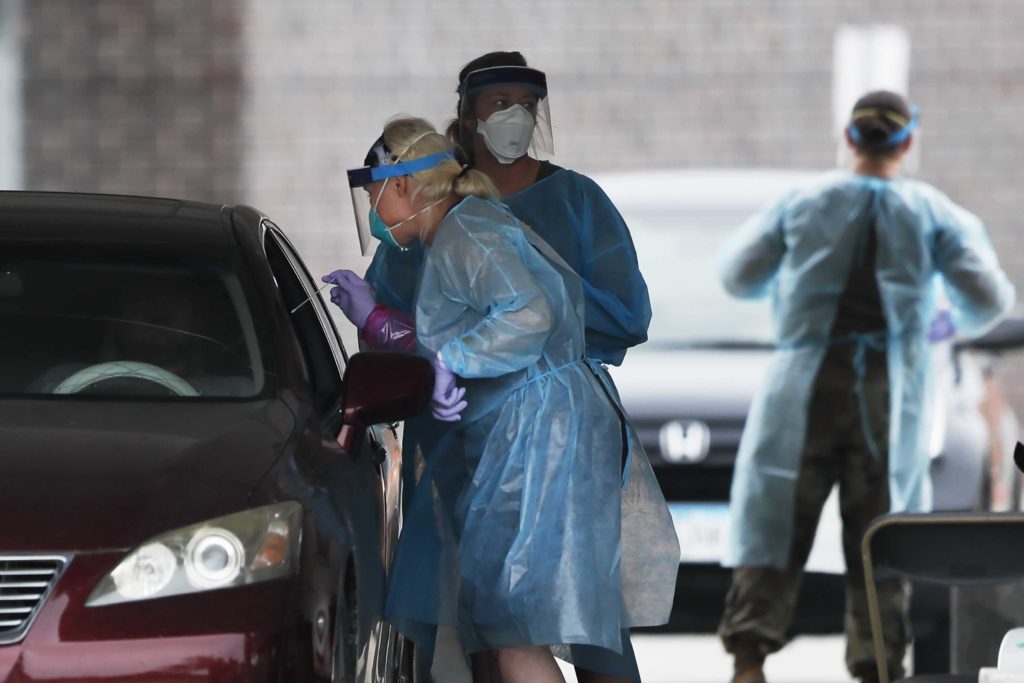This post originally appeared on the parksidepediatrics.com and is being presented here to help educate our readers about Coronavirus. Special thanks to Parkside Pediatrics for providing this content.
Rachel Sine, MD
Adding to the building stress and anxiety that the COVID-19 pandemic brings to all of our lives, a couple of cases of MIS-C have been confirmed in our beloved state of South Carolina. Hearing this can feel debilitating and overwhelming, but here at Parkside, we believe knowledge is power. Read along for what we now know about this syndrome, its relation to the coronavirus, and how the condition can be treated.
What Actually is MIS-C?
MIS-C, or Multisystem Inflammatory Syndrome in Children, is thought to be an inflammatory reaction that happens 2-4 weeks after a COVID-19 infection (more on this below). MIS-C resembles a known condition called Kawasaki Disease that causes inflammation of the blood vessels leading to a decreased blood flow to vital organs (think heart, kidneys, brain etc.). Obviously, decreased blood flow to vital organs is not ideal and can cause serious damage.

There is some good news in that MIS-C is extremely rare. There have been less than 200 cases reported in the United States and all the cases reported have been in children or adolescents—no known cases have been found in infants so far.

SC announces 2 more cases of MIS-C in children; 1,538 new cases of COVID-19, 49 additional deaths
So, while thankfully the chances of your child developing this condition are quite small, it is important to educate yourself about the symptoms, causes, and preventative measures as the syndrome can be severe, particularly when it goes untreated. Again, knowledge is power.
How is MIS-C Related to the Coronavirus?
While we cannot say without a shadow of a doubt that MIS-C is caused by COVID-19, most doctors do believe there is a STRONG correlation. According to the American Academy of Pediatrics, or AAP, a patient who is suspected to have MIS-C, should also be “under investigation for COVID-19” and an anti-body test should be conducted if available.
It is important to note that the initial possible infection of COVID-19 does not have to have been severe for a child to later develop MIS-C. It would not be a stretch to say that most parents did not know that their child had even had the coronavirus until they were diagnosed with MIS-C.
What To Look For
If your child has a fever for more than 24 hrs. and one of the following symptoms, they need to be evaluated…
- Red rash
- Red, cracked lips
- Red, blood shot eyes
- Abdominal pain
- Swelling of hands or feet
- Unusual weakness or fatigue
Preventative Measures
Again, MIS-C is exceedingly rare. Very rare. But, based on our current knowledge, the best way to prevent your little one from developing it is to avoid the novel coronavirus. Stay at home when possible, social distance when you are out in public, help your child wear a cloth face mask, and make hand washing your family’s new favorite hobby.
Treatment
Another piece of good news surrounding this syndrome is that if children are seen early on and assessed correctly, treatments are working! Anti-inflammatory treatments (think steroids and intravenous immunoglobulin, or IVIG) have proven very effective in protecting organs from long-lasting damage.

South Carolina Coronavirus Updates
What to Do
As stated previously, if your child has a fever for more than 24 hrs. and has one of the symptoms from the list above, call us for an appointment. In the rare case that your child is thought to have MIS-C, they will likely be hospitalized for the appropriate treatment.
***Please note: If your child is having trouble breathing, has a blue-ish tint to their lips or face, or cannot be woken up easily, we recommend you call 911 immediately.***
We know these are strange times to be living in and even stranger times to be raising a family. Please don’t hesitate to reach out to us with any and all questions surrounding MIS-C or COVID-19. We are here for you.
Until next time,
Dr. Rachel Sine
About Dr Sine
Professional Degree School:
Medical University of South Carolina (MUSC)
favorite family game:
Balderdash
favorite children’s book:
The Lorax

Join the Over 500 Upstate Families Doing the Free 2020 Park Hop
[catlist name=”kids”]
[catlist name=”iongreenville”]












